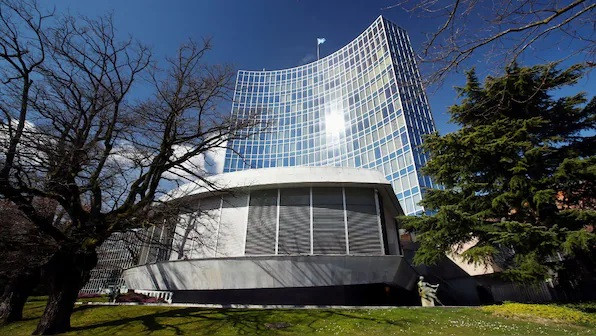Popular Reads
Top Results
Can't find what you're looking for?
View all search resultsPopular Reads
Top Results
Can't find what you're looking for?
View all search resultsNewest WIPO treaty: A victory for multilateralism
Allowing the participation of representatives from indigenous communities allowed for a more inclusive process and sense of ownership of the treaty – and at the end safeguarded their interests in the treaty.
Change text size
Gift Premium Articles
to Anyone
A
t a time when multilateralism appears paralyzed by widening geopolitical tensions, erosion of international norms and the proliferation of regional conflicts, the World Intellectual Property Organization (WIPO) has stepped up to rewrite its own narrative.
Over the span of intense two-week negotiations, WIPO, its member states and observers concluded a diplomatic conference by agreeing through consensus the Treaty on Intellectual Property, Genetic Resources and Traditional Knowledge on May 24.
The journey to this point has been long and winding and spans over 20 years of intense debates, discussions and concessions. The divergence of interests, concerns and red lines of key stakeholders have all come together and colored the constructive debates resonating throughout the halls and corridors of the WIPO headquarters in Geneva.
The different interests, albeit wide-ranging and polarized, at the end, found common ground and consensus at the various plenary, informal and ad hoc groups. And Indonesia, for its part, has been privileged to be at the forefront of this historical moment.
Indeed, since its inception in 2009 in Bali, Indonesia has been heading the Like-Minded Group of Countries (LMCs), an important cross-regional grouping of more than 60 member states of WIPO, spanning Asia, Africa and Latin America.
In doing so, the LMCs laid the groundwork for a united front of developing countries leading up to and throughout the negotiations. This solidarity among developing countries proved crucial in tipping the balance slightly in favor of the demanders of the treaty and eventually setting up the conditions to reach consensus.
These conditions – built and maintained over many years – were in perfect display throughout the two weeks of negotiations.
First was the development of a solid draft text.
While the draft text of the diplomatic conference was the culmination of years of work, a breakthrough was achieved in 2019, when Indonesia convened a retreat in Montreux, Switzerland, bringing all parties together. This retreat eventually led to the development of the chair's text, by the former chair of the Intergovernmental Committee, Ian Goss from Australia. This chair's text has remained practically unchanged and became the basic proposal of the diplomatic conference.
Second was a robust and dynamic methodology that prioritized finding common landing zones.
The methodology employed at the diplomatic conference proved to be crucial. It allowed for focused yet open and transparent discussions, in large and small groups with the introduction of "guardrails" to guide the negotiations.
A key feature of the methodology is that it allowed for all present delegations to follow smaller group discussions through live viewing, retaining a sense of ownership and transparency.
Third was an experienced presidency, committee chairs and key countries with knowledgeable experts.
The perfect blend of experience, tenacity and technical knowledge at the helm led to constructive discussions and the seeking of common ground. While it would be impossible to mention all, there were many unsung heroes and bridge builders on both sides that led to the success of the conference.
The fourth condition was well-defined interests of indigenous peoples and local communities (IPLCs). Allowing the participation of IPLC representatives throughout the discussions allowed for a more inclusive process and sense of ownership of the treaty – and at the end safeguarded their interests in the treaty.
Fifth was open dialogue and trust-building. In the lead up to the diplomatic conference, WIPO held several regional and cross-regional meetings to foster dialogue and common understanding.
Similarly, throughout the years, Indonesia has also been active in convening various retreats, regional gatherings and coordination meetings to build trust among developing and developed countries.
One week prior to the diplomatic conference, Indonesia held an LMCs meeting attended by ambassadors and experts to finalize preparations and stand united on key positions and strategies.
In summary, these specific conditions proved crucial to adapt the first ever treaty in recognition of the rights of indigenous peoples and local communities around the world in the context of intellectual property.
The negotiations held at WIPO should serve as valuable lessons for other multilateral forums to take notice – putting forth trust, dialogue and mutual cooperation above all else.
As a result of these conditions, WIPO and its member states managed to enrich and advance a text that addresses common interests and concerns.
But more importantly, the collective effort should serve as a stark signal that multilateralism is indeed alive and here to stay, both within WIPO and beyond.
***
The writer is Indonesian permanent representative to the United Nations, World Trade Organization and other international organizations in Geneva.










